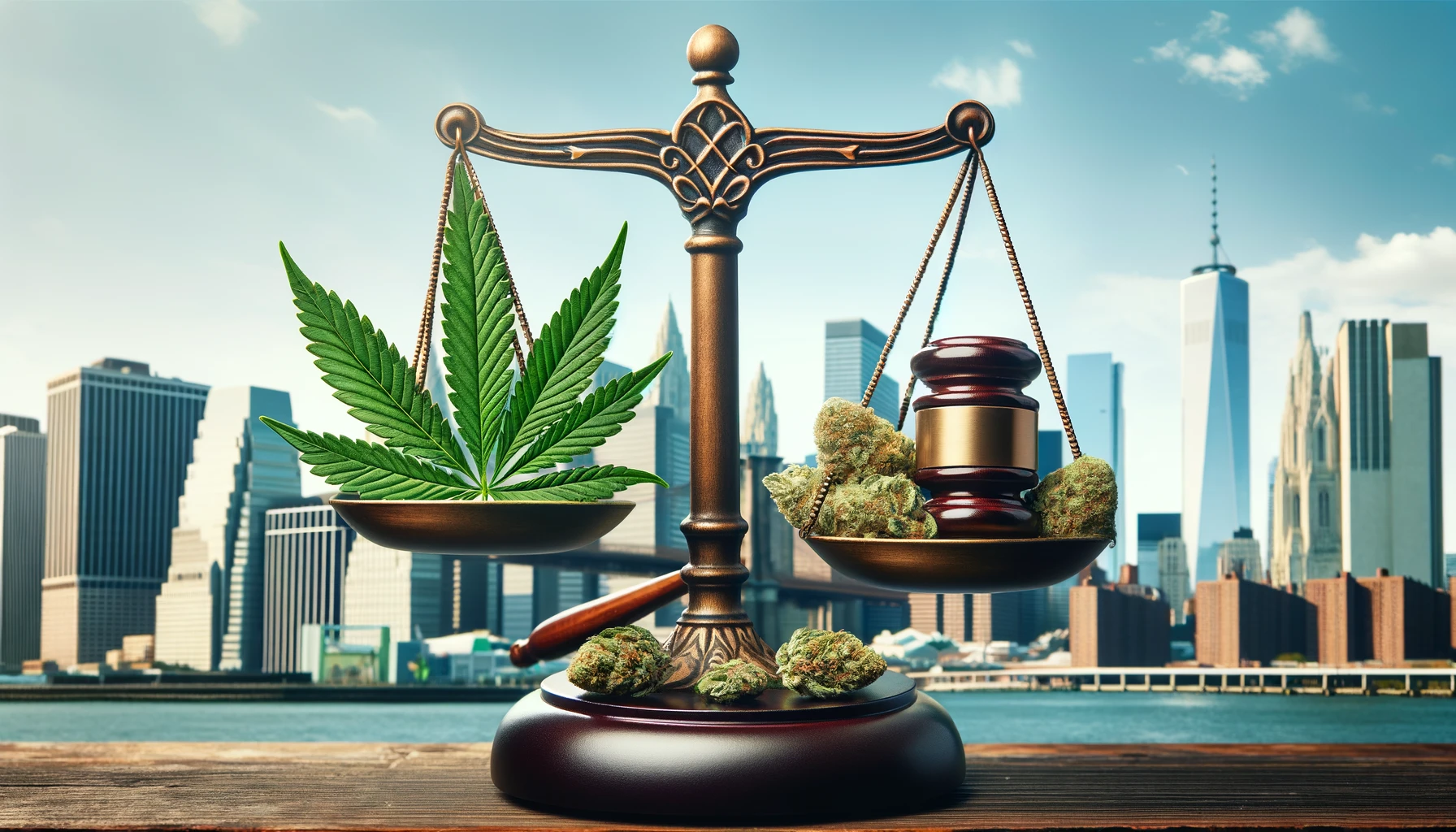Citing losses in the millions of dollars, a group of ten hemp-based businesses are suing the Office of Cannabis Management in federal court.

The pushback against the dubious and destructive slew of new laws attacking the intoxicating hemp derivative (IHD) market in the United States is continuing to gain political and legal steam—this time in the Empire State of New York.
As first reported by MJ Biz Daily, ten state-licensed hemp companies filed suit against the New York Office of Cannabis Management (OCM) in the federal Southern District of New York on March 1.
Citing the enforcement of newly revised hemp regulations this past November, as well as several raids designed to crack on the state's illegal cannabis black market, the companies claim that the actions of the OCM and state law enforcement have had an "immediate and catastrophic effect," costing them "millions of dollars" in the process.
The suit names the following as defendants:
- The New York Cannabis Control Board (CCB)
- The Office of Cannabis Management (OCM)
- CCB Chair Tremaine Wright
- OCM Executive Director Chris Alexander
Along with the financial damages incurred, the group also claims the defendants violated the hemp companies' constitutional rights. Furthermore, the companies are seeking an unspecified compensation amount and a judge's order invalidating the state's most recent hemp rules.
Among the plaintiffs are retailers, beverage manufacturers, and, most notably, Washington state-based Cycling Frog, which successfully sued the state regarding another set of revised hemp guidelines released by officials this past July.
According to Syracuse.com's Cannabis Insider, in that case, a New York judge invalidated those rules this past November, saying that the state failed to prove that the hemp items in question "misled or harmed" consumers.
As a result of that case, state officials issued a new set of highly restrictive rules on November 17 that are now the subject of this new suit. The new regulations imposed a mandatory 15-to-1 ratio of CBD to THC in hemp-based products, which "drastically limits the products available for market" and, according to the suit's language, pushes potential customers "into the illicit market."
The plaintiffs' attorney, Joshua Bauchner, chair of the Cannabis, Hemp, and Psychedelics Practice Group at New Jersey-based law firm Mandelbaum Barrett, said in an email that his clients "remain ready, willing, and able to work with the State to adopt reasonable regulations to protect against the misuse of hemp."
However, that cooperation can only occur in good faith and not with the state blatantly and callously denying Bauchner's clients their constitutional rights.
"We will not standby, however, and allow the State to violate Plaintiffs' constitutional rights, engage in warrantless searches and seizures, and maliciously disrupt their businesses in a misguided effort to shut down unlicensed cannabis stores, which have nothing to do with hemp businesses operating in full compliance with both state and federal law," Bauchner said.
"We will not standby, however, and allow the State to violate Plaintiffs' constitutional rights, engage in warrantless searches and seizures, and maliciously disrupt their businesses in a misguided effort to shut down unlicensed cannabis stores, which have nothing to do with hemp businesses operating in full compliance with both state and federal law."
- Plaintiffs' Attorney, Joshua Bauchner from the Mandelbaum Barrett Law Firm
This latest episode is just the most recent example of hemp businesses exerting their legal right to challenge the excessively punitive and wrong-headed attempts by uneducated and politically motivated state officials and lawmakers to circumvent federal law to appease the interests of Big Cannabis and the deep-pocketed and ruthless large operators in the sector.
Similar challenges are expected to occur in South Carolina, Florida, and several other jurisdictions where state legislatures have instituted or are trying to implement anti-hemp legislative measures.








































